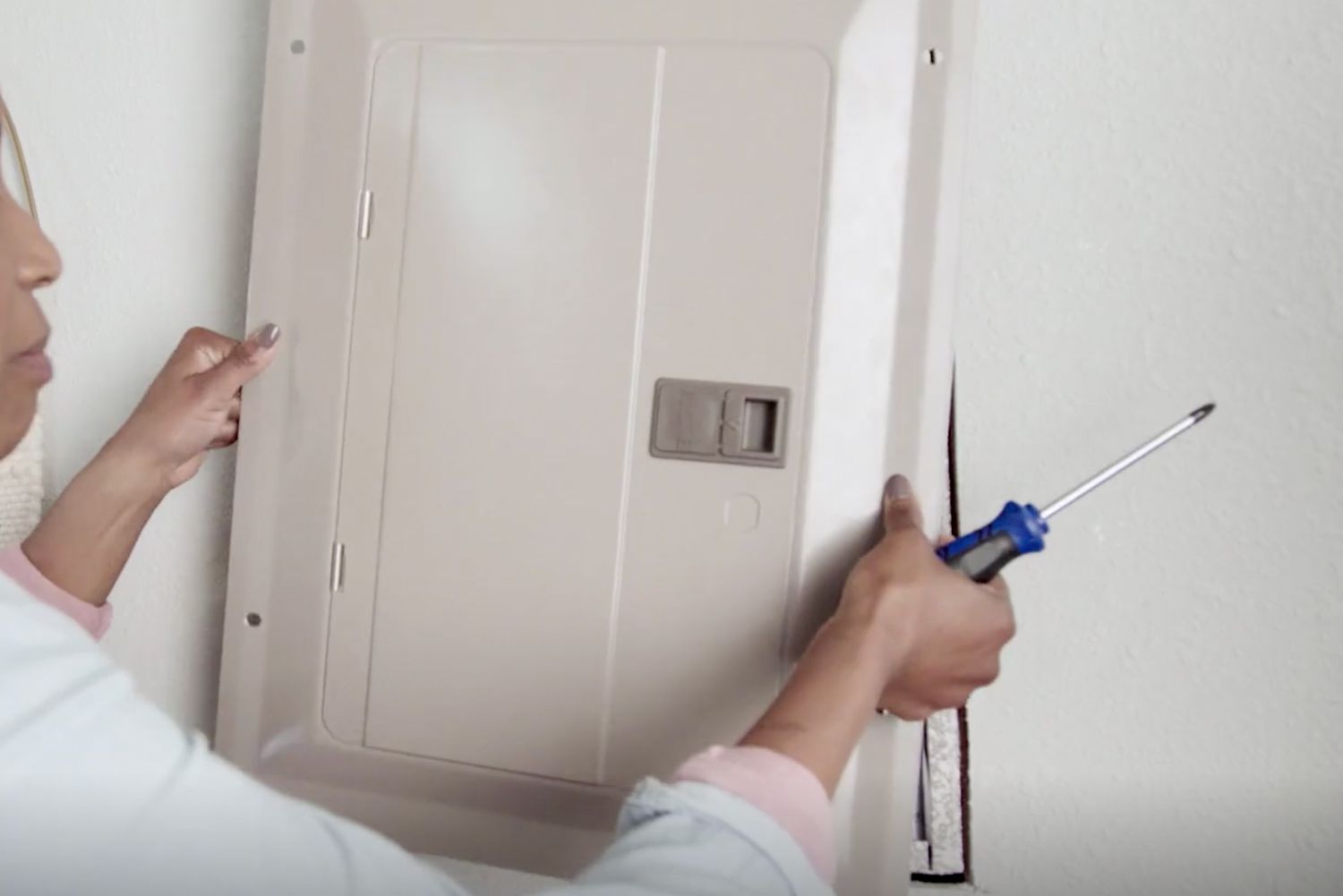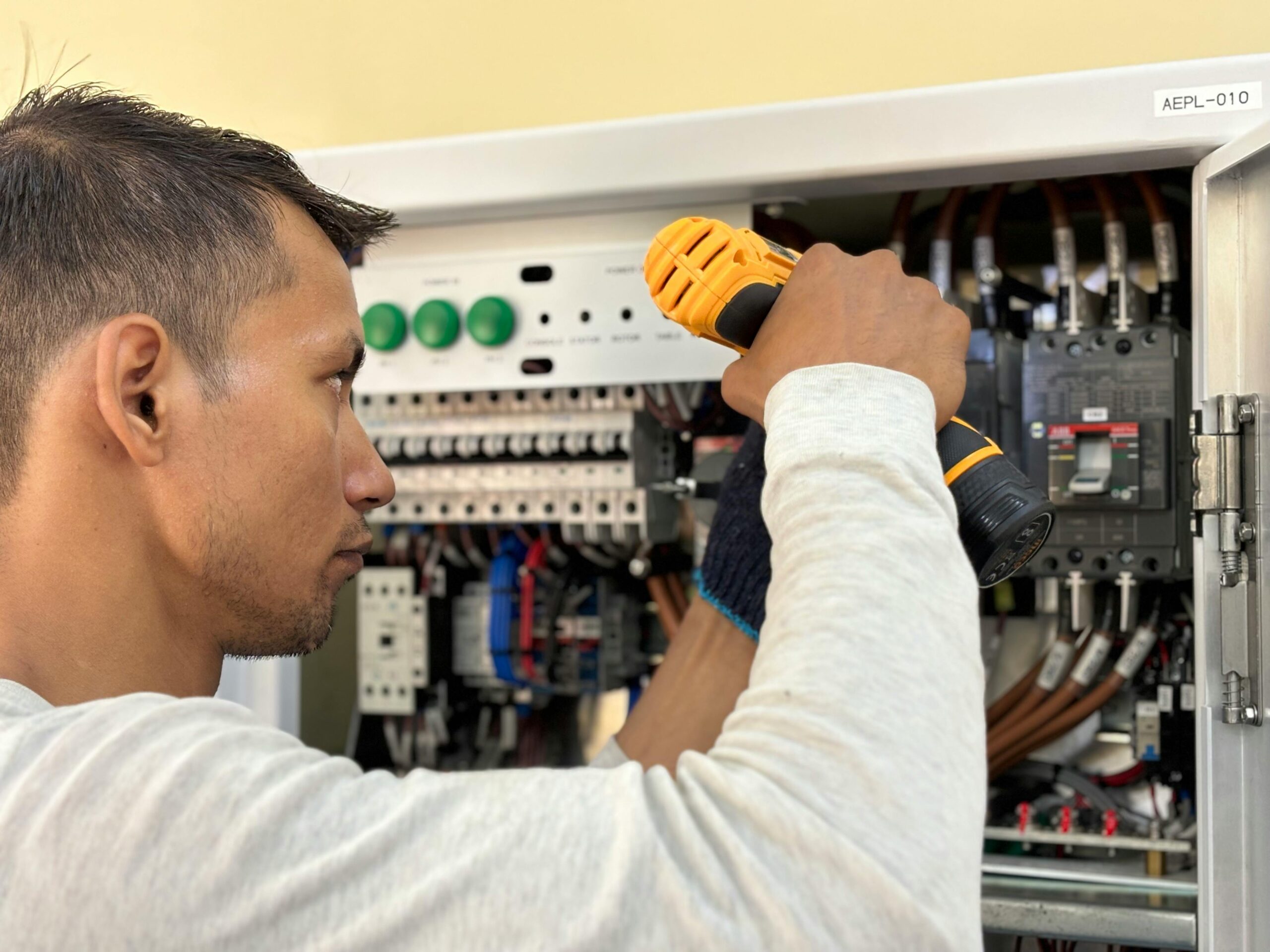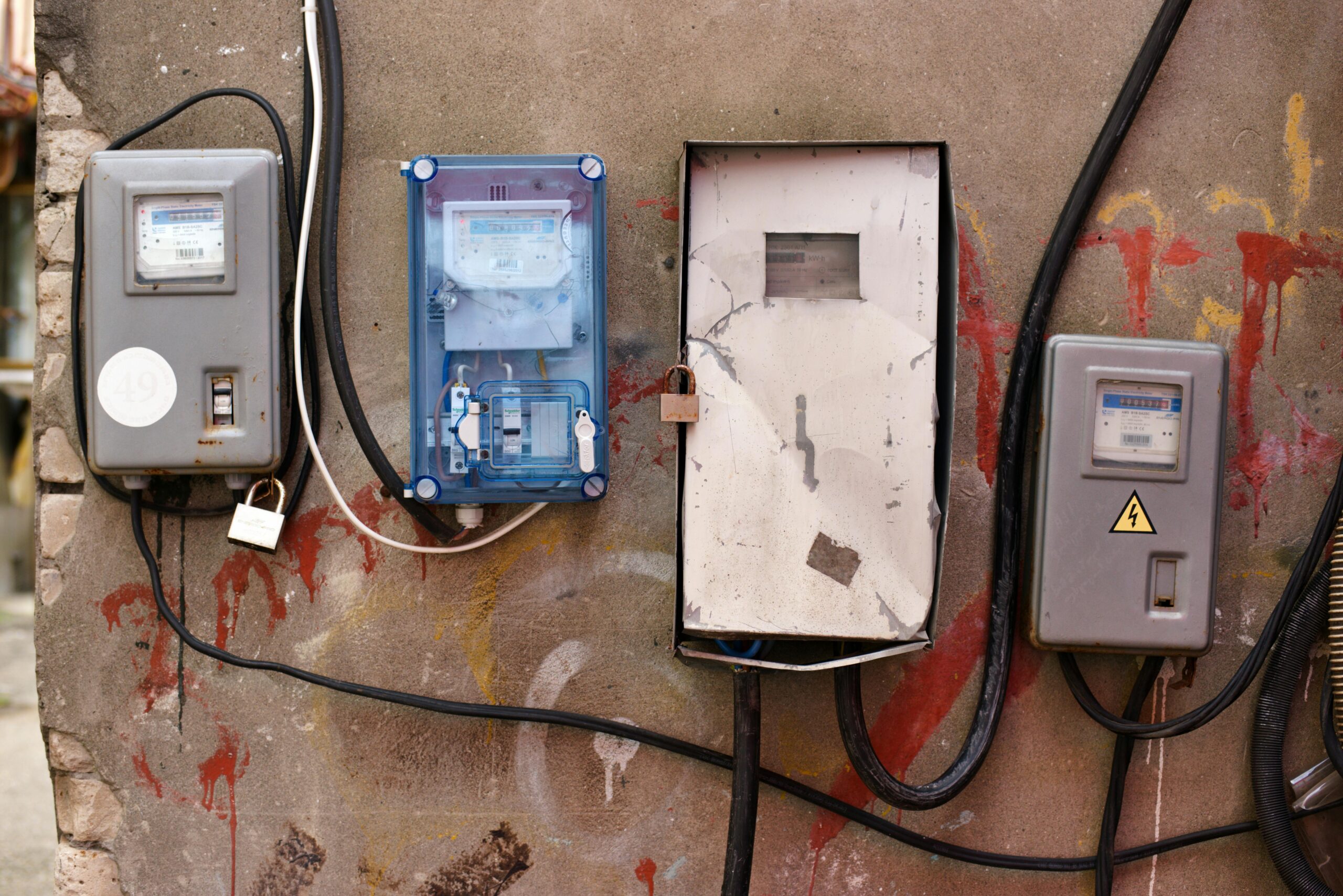When protecting your home, there are often several potential hazards to consider. One of the most important yet often overlooked is electrical shocks and fires caused by uncovered electrical panels. Without proper protection, you risk an expensive repair bill or major loss due to fire and endanger yourself and those around you. This blog will examine why covering your panel with an appropriate enclosure is essential and the best way to keep your home safe from electrical disasters.
Understanding Electrical Panels
Electrical panels are the heart of your home’s electrical system, directing power to every light, outlet, and appliance. These panel boxes contain circuit breakers or fuses that control the electricity flow throughout your home. Various types of electrical panels are available to homeowners, including Main Breaker and Main Lug panels, each with components such as bus bars and grounding equipment.
However, regardless of the type, it is necessary to cover every electrical panel for safety reasons. Covering your panel protects it from accidental damage and protects your family from potential electrical hazards.
Assessing Your Electrical Panel
Regarding your home’s electrical panel, keeping a close eye on its upkeep is essential. Not only can it help you identify potential safety risks and hazards, but it can also prevent dangerous electrical malfunctions from occurring. In addition, a few key signs can indicate whether your panel needs attention from a professional electrician.
These include flickering lights, frequently tripping breakers, or outdated equipment past its prime. While some homeowners may be tempted to try and tackle electrical panel issues on their own, it’s always best to leave these tasks to the pros.
Types of Electrical Panel Covers
The electrical panel covers come in various types, each with its own set of advantages and disadvantages. Here are some of the common types:
Hinged covers
These covers swing open on hinges, allowing easy panel access. Hinged covers are ideal for panels that require frequent maintenance or inspection. The disadvantage of this type of cover is that it can be hazardous if left open and unattended.
Screw-on covers
This type of cover is screwed onto the panel or circuit box. It is secure and prevents unauthorized access to the panel. The disadvantage is that it can be difficult to remove if the panel needs maintenance or inspection.
Snap-on covers
These covers snap onto the panel or circuit box. As a result, they are easy to remove for maintenance and inspection. The disadvantage is that they may not be as secure as screw-on covers.
Lockable covers
These covers have a lock mechanism that prevents unauthorized access to the panel. They are secure and provide added safety. The disadvantage is that they may be more expensive than other covers.
When choosing the best cover for your electrical panel, consider the level of security needed, the frequency of access required, and the budget available. In addition, selecting a cover compatible with your panel or circuit box that meets the necessary safety standards is essential. Finally, always consult a licensed electrician for guidance and installation.
DIY Electrical Panel Cover Installation
Installing a DIY electrical panel cover is a good option, and it requires a few tools and materials such as a screwdriver, drill, measuring tape, pencil, and the cover itself, which can be made of wood or metal.
Take your time measuring and marking where to drill holes for the cover to be attached to the panel, and ensure that the cover is level before tightening all the screws. Here are the general steps involved in installing an electrical panel cover:
- Turn off power – It is crucial to turn off power to the panel before attempting any installation. Locate the main circuit breaker and switch it off.
- Remove the old cover – Unscrew or unsnap the old cover from the panel or circuit box.
- Clean – Wipe down the surface of the panel or circuit box to remove any debris or dust.
- Measure – Measure the dimensions of the panel or circuit box to ensure the new cover will fit properly.
- Prepare a new cover – Based on the type of cover chosen, prepare it accordingly. For example, if it is a screw-on cover, drill holes into the cover to match the holes on the panel.
- Install new cover – Align it with the panel or circuit box and secure it based on the manufacturer’s instructions.
- Turn on power – Once the cover is securely in place, turn the power.
Professional Electrical Panel Cover Installation
When installing an electrical panel cover, it’s essential to prioritize safety and ensure everything is done correctly. That’s why hiring a professional electrician is strongly recommended. By taking this approach, you can benefit from their expertise and experience, ultimately providing peace of mind.
Of course, you want to find the right electrician for the job. It means doing your research, checking qualifications and credentials, and reading reviews from previous customers.
Maintaining Your Electrical Panel Cover
Maintaining your electrical panel cover is essential to keeping your home’s electrical system safe and functioning correctly. To ensure that your cover stays in good condition, cleaning it regularly and avoiding damage is important. Start by wiping down the cover with a soft, dry cloth to remove dust and debris. If the cover is filthy, you can use a mild soap and water solution to clean it.
However, avoid using harsh chemicals or abrasive materials that could scratch or damage the cover. If you notice any cracks or breaks in the cover, it’s time to replace it immediately. A damaged cover can expose your electrical system to hazards, creating a potential fire risk.
Safety Precautions When Covering Your Electrical Panel
Safety precautions are essential to ensure the protection of you and your family. For example, one common mistake is using the wrong material to cover your panel, leading to electrical issues. In addition, it’s important to use sturdy and reliable materials and to avoid using locks or keys that could hinder panel access in emergencies.
Ensure your cover is safe and secure, fits well, and is properly grounded. Remember to label it so that everyone in your household knows where to find it. Then, follow these tips to keep your electrical panel covered safely and effectively.
Legal Requirements for Electrical Panel Covers
The electrical panel covers at home are subject to strict legal requirements and building codes as required in commercial and industrial settings. Here are the building codes and regulations that apply to electrical panel covers at home:
- National Electrical Code (NEC) – The NEC provides standards for installing electrical systems in residential properties, including electrical panel covers. These standards cover the requirements for electrical panel location, access, and grounding.
- International Residential Code (IRC) – The IRC sets out the minimum requirements for building safety in residential properties, including electrical systems and equipment.
- Local building codes – Local building codes may also apply and differ from state to state. It is crucial to refer to your local building code to ensure compliance with any additional requirements that may apply.
Make sure your electrical panel cover at home complies with the law. We encourage you to hire a licensed electrician with a thorough knowledge of local building codes and regulations. The electrician will ensure that the cover you choose suits your specific situation and meets all legal requirements, including the NEC and IRC. They will also verify that the cover is installed correctly, with appropriate markings and a lockout device.
Alternatives to Covering Your Electrical Panel
Covering an electrical panel may be necessary to create a more aesthetically pleasing space, but it’s important to remember that electrical panels must always be accessible in an emergency. Here are some alternative options for covering your electrical panel:
Build a Cabinet
One option is to build a cabinet around the electrical panel. It can provide an easy way to hide the panel while keeping it accessible. It’s essential to use a cabinet design with a removable front panel or door for easy access. However, remember that cabinets can be expensive and may take up more space.
Room Divider
Another option is to use a room divider to conceal the electrical panel. It can provide a stylish way to hide the panel while keeping it easily accessible. Room dividers come in various styles, materials, and sizes, making it easy to find one that matches your decor and space. However, ensure the dividers can be easily moved and do not block access to the panel.
Artwork or Decor
An easy and affordable option is to hang artwork or decor over the electrical panel. It can add a pop of color or visual interest to your space while keeping the panel easily accessible. However, make sure to choose lightweight decor that can easily remove in case of emergency.
When choosing the best option for your needs, consider cost, space, accessibility, and style. Make sure that whatever option you choose, the electrical panel remains easily accessible in an emergency.
Frequently Asked Questions
What is the purpose of an electrical panel cover?
An electrical panel cover’s primary purpose is to protect the panel and the circuit breakers from dust, dirt, and other debris. It also improves the aesthetic appeal of the space while still keeping the panel easily accessible.
How do I choose the right cover for my electrical panel?
When choosing an electrical panel cover, you should consider the size and type of the panel, the material of the cover, the accessibility of the panel, and any local building codes or regulations.
Can I install an electrical panel cover myself?
If you know electrical systems and have experience with electrical panel covers, you can install an electrical panel cover yourself. However, it’s always recommended to consult a professional electrician for installation to avoid potential hazards.
Is it safe to cover my electrical panel?
It’s safe to cover your electrical panel if you choose a cover with a removable front panel or door for easy access. However, it’s vital to ensure that the panel remains easily accessible in case of emergency.
Are there legal requirements for covering my electrical panel?
There may be local building codes and regulations that require certain specifications for electrical panel covers. It’s essential to consult with a licensed electrician to ensure you are complying with all necessary regulations.
What are the benefits of covering my electrical panel?
The benefits of covering your electrical panel include improved aesthetics, protection against debris, and possible increased energy efficiency if the cover is insulated.
How often do I need to replace my electrical panel cover?
The electrical panel covers typically need to be replaced if they are damaged or malfunctioning correctly. First, however, it’s important to ensure the cover is still securely attached and there are no signs of wear and tear.
What are the alternatives to covering my electrical panel?
Alternatives to covering your electrical panel include building a cabinet, using a room divider, or hanging artwork or decor over the panel.
How do I maintain my electrical panel cover?
To maintain your electrical panel cover, keep it clean and free of debris. In addition, ensure it remains securely attached, and there are no signs of damage or wear and tear.
When should I call a professional electrician?
It’s recommended to call a professional electrician for installation, repairs, or maintenance of your electrical panel and its cover. Additionally, if you notice any signs of damage or malfunction with your panel, contact an electrician immediately to avoid potential hazards.
Conclusion
Ensuring your home is safe from any potential electrical hazards has never been more critical. Protecting your electrical panel not only fulfills the requirements of most home insurance policies but can also provide peace of mind for you and your family.
At Smith & Jones Electric, we provide exceptional services that ensure your convenience and safety. So why wait? Contact us today, and we will safeguard your home’s electrical system!
We help companies refine their messaging, hone in their sales process, and grow their pipeline – all with a new website.






